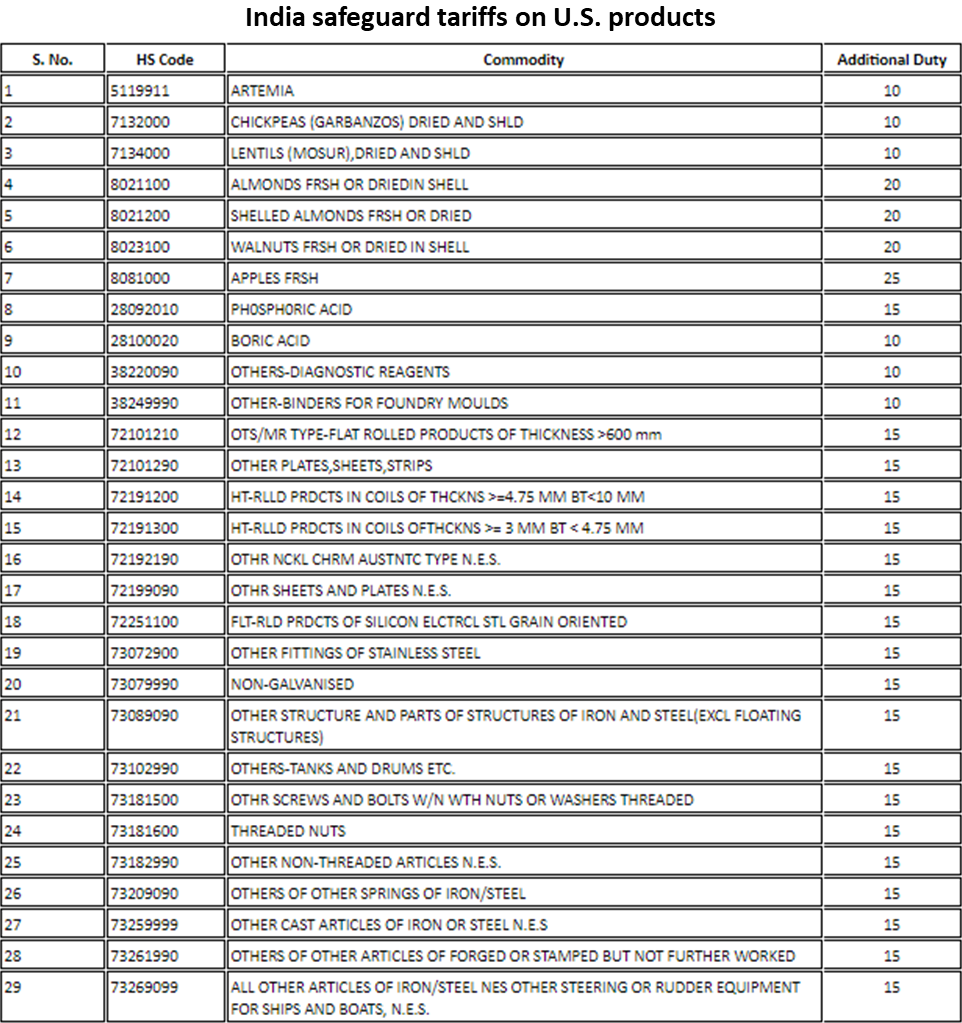Government/Policy

June 21, 2018
India Announces Safeguard Tariffs
Written by Sandy Williams
India is fighting back against U.S. tariffs on aluminum and steel by imposing higher tariffs on $235 million of American goods. The tariffs increase duties on 29 items including chickpeas, walnuts, almonds, lentil and artemia (brine shrimp). India, the largest buyer of U.S. almonds, has increased the tariff by 20 percent on almonds and walnuts to a duty of 120 percent.
The tariff list includes 18 iron and steel items, but India has backed off from the category of “motorcycles above 800cc” that would have hit Harley-Davidson with a 50 percent additional tariff. Harley Davidson has been a point of contention with President Trump, despite imports of only $10 million of motorcycles in 2017-18.

India was singled out by Trump at the G7 summit in Quebec for charging 100 percent tariffs on some U.S. goods. “We’re like the piggy bank that everybody is robbing,” Trump told reporters.
The new tariffs will take effect Aug. 4 giving both sides time for negotiation.








